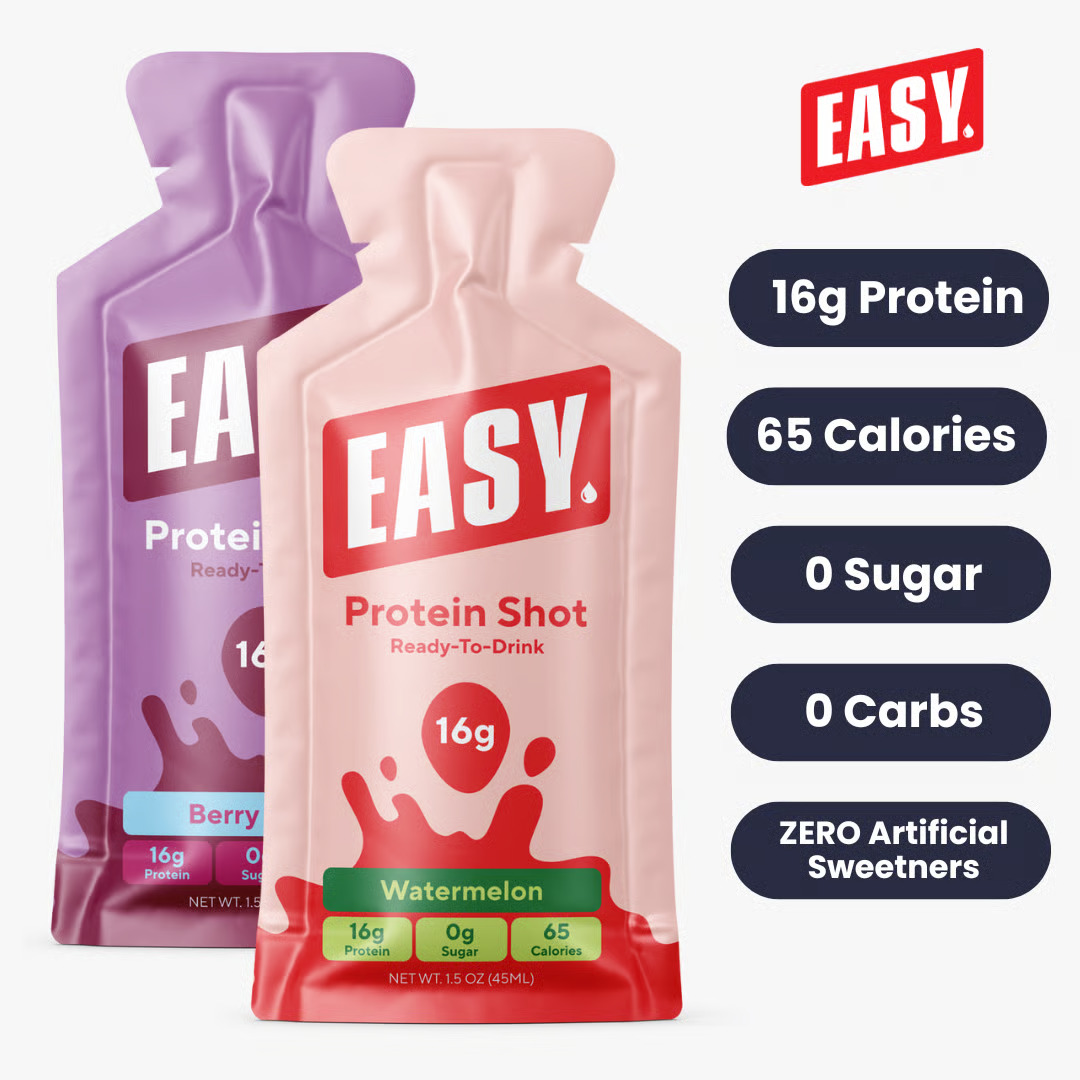You finish your workout. You hydrate. Maybe you stretch or drink a protein shake.
But here’s something most women miss: your gut needs recovery just as much as your muscles do.
Exercise is healthy—but it’s still a stressor. It raises cortisol. It temporarily increases gut permeability. And if your digestion was already off (hello bloating, cramps, or fatigue), the wrong post-workout routine can make it worse.
In this article, we’ll show you how to support your gut after workouts with an anti-inflammatory recovery plan designed to reduce bloat, improve nutrient absorption, and speed up results.
The Truth About Exercise and Gut Stress
Moderate exercise improves gut health over time. But intense or long-duration training can actually disrupt your digestive system—especially if you don’t give it the support it needs.
During a tough workout, your body shifts blood flow away from your digestive organs and toward your muscles. At the same time, your body heats up and releases stress hormones. All of this can lead to:
- Temporary “leaky gut”
- Nausea or cramping after workouts
- Poor nutrient absorption
- Increased inflammation
If you’ve ever felt bloated, foggy, or exhausted after a hard workout—this might be why.
Over time, this stress adds up. If your gut is already sensitive (due to things like poor diet, antibiotics, or hormonal changes), it can slow recovery and trigger a cascade of problems: breakouts, fatigue, cravings, and even stubborn weight gain.
Why Gut Recovery = Faster Gains
Your gut isn’t just a digestive tube. It’s where you absorb nutrients, regulate inflammation, and produce neurotransmitters like serotonin and dopamine. That means a strong gut helps with:
- Protein synthesis (hello muscle repair)
- Recovery from microtears and inflammation
- Immunity (especially important for women training hard)
- Energy levels and mood stability
If your gut is inflamed or undernourished, no supplement or workout plan will work as well. The truth is, you can’t out-train a sluggish gut.
So let’s fix it—starting with what you do right after a workout.
What NOT to Do After You Train
Let’s start by clearing up a few common mistakes that sabotage gut recovery:
1. Slamming a giant whey shake
Fast-digesting protein isn’t always the answer—especially if your gut is inflamed. Dairy-based whey (especially cheap isolates) can trigger bloating, acne, or cramps in many women.
2. Eating too fast or too heavy
Your digestive system is still recovering from the workout. That giant bowl of oats, peanut butter, and fruit might be clean—but it can be too much, too fast. Overeating post-workout can backfire.
3. Forgetting to rehydrate with minerals
Plain water isn’t enough. You lose electrolytes when you sweat, and if you don’t replenish them, digestion slows down. Think of it like trying to run a blender with low battery.
4. Chugging artificial “fitness drinks”
Most brightly colored fitness beverages are full of dyes, fake sweeteners, and preservatives that wreck your gut bacteria. Even if they claim to be “electrolyte” drinks, they often cause more harm than good.
The Anti-Inflammatory Gut Recovery Formula
Here’s what to focus on after a workout to reduce gut stress and speed up total recovery:
Hydration + Electrolytes (0–30 minutes post-workout)
Your gut lining depends on proper hydration and electrolyte balance. Rehydrating with water alone can dilute stomach acid and make digestion harder.
Instead, sip on:
- Water with pink salt and lemon
- Coconut water (unsweetened)
- A homemade electrolyte mix (sodium, potassium, magnesium, water, trace minerals)
Add a dash of ginger juice if you’re prone to nausea or cramps after workouts.
Gut-Friendly Protein (30–60 minutes post-workout)
Instead of a massive whey shake, try:
- Collagen protein (especially nano-hydrolyzed for fast absorption)
- Plant-based protein with digestive enzymes
- A small serving of easy-to-digest cooked protein (like lentil soup or soft tofu)
If you’re sensitive to bloating, skip the heavy fiber for now. You can add it later in the day once your gut has calmed down.
Anti-Inflammatory Boosters
Inflammation is a normal part of muscle recovery—but chronic inflammation wrecks the gut. Add these to your recovery to support both:
- Turmeric (curcumin): Try a turmeric latte or capsule with black pepper
- Ginger: Fresh ginger tea or chews help soothe the stomach and reduce soreness
- Blueberries: Rich in antioxidants, low in sugar
- Aloe vera juice (small amount): Soothes the gut lining
- L-glutamine: An amino acid that helps rebuild the intestinal wall
Breathwork and Nervous System Reset
Your nervous system controls digestion. If you finish a workout hyped up and stressed, your gut won’t shift into “rest and digest” mode. Calm it down first.
Try:
- 3–5 minutes of slow nasal breathing (inhale 4 seconds, exhale 6 seconds)
- Legs-up-the-wall pose
- A cold rinse or shower to reset cortisol
This simple step makes a huge difference in how well your body digests your post-workout meal.
Sample Gut-Friendly Recovery Plan
Immediately After Workout:
- Coconut water with a pinch of sea salt and 1 tsp ginger juice
- 5 minutes of slow breathing or legs-up pose
30–60 Minutes Later:
- Smoothie with collagen, blueberries, ginger, and almond milk
- Add turmeric, cinnamon, or chia if tolerated
- Optional: L-glutamine or digestive enzymes
Later That Day:
- Cooked veggies (like zucchini, spinach, or carrots)
- Prebiotic fiber (green banana, cooked oats)
- Fermented foods (like sauerkraut or coconut yogurt)
How You’ll Know It’s Working
After a few workouts with this routine, many women report:
- Less bloating post-workout
- More stable energy and mood
- Faster muscle recovery and less soreness
- Regular bowel movements
- Fewer sugar cravings later in the day
Your gut doesn’t need to be perfect overnight. But even a few of these small changes can dramatically shift your recovery and results.
Bonus: Best Supplements for Gut + Fitness Recovery
- Spore-forming probiotics: These survive digestion and help reset the gut microbiome
- Magnesium glycinate: Supports muscle relaxation and bowel regularity
- L-glutamine: Rebuilds gut lining, especially after intense training
- Curcumin: Natural anti-inflammatory, especially helpful for joint pain
- Digestive enzymes: Help break down protein and prevent bloating
Start with one or two at a time, and always take a break every few weeks to let your body adjust.
Bottom Line: Your Gut Deserves the Same Respect as Your Muscles
Working out is supposed to make you feel strong, not wrecked. If you’re bloated, tired, or craving junk food after every workout, that’s a sign your gut needs help.
The best part? You don’t need extreme diets or expensive supplements. Just a few smart post-workout swaps can lower inflammation, improve digestion, and make every training session count.
Recovery isn’t just about your muscles.
Your gut is part of the process. Treat it like it matters.
Want me to continue with the next article: “Poop Like a Pro: Why Athletes Are Obsessing Over Their Gut Health”?
New Customers Only
15% OFF + Free Shiping
 ORDER NOW ➜
ORDER NOW ➜Berry Burst flavors are limited!
New Customers Only
 ORDER NOW ➜
ORDER NOW ➜FREE Lime, FREE Cobanero,
and FREE Blue Corn bag
when they purchase
MASA Original.
New Customers Only
 ORDER NOW ➜
ORDER NOW ➜30% OFF, a FREE spa headband,
FREE scrunchies, and
a lifetime warranty
when they purchase today.


